Old West Dentistry
Old West Dentistry
.
The Old West wasn’t exactly New York City or Charleston or Philadelphia. When a toothache turned mean as a rattler, who could a body turn to for help?
.
![]()
.
Have you ever had a toothache? Real, full-blown, agony? Like someone’s stabbing a branding iron through your tooth and jaw? I have. Believe you me, I was never so grateful for 21st-century dentistry.
.
Victorian Dentistry
.
.
Dentistry came a very long way while Victorian reigned. Significant leaps in technology and medicine benefited young and old. In many places, dentistry proved quite modern.
.
But on the Frontier…
.
A few dentists did go west. One of the most famous was Doc Holliday (John Henry Holliday, D.D.S.), graduated from Pennsylvania College of Dental Surgery in 1872. Doc took himself off to frontier town Dodge City, Kansas, when tuberculosis caused him to seek a bit of living. Doc Holliday practiced dentistry by day and played cards by night. Citizens were delighted to have a real dentist on hand and Holliday was purportedly highly skilled.
.
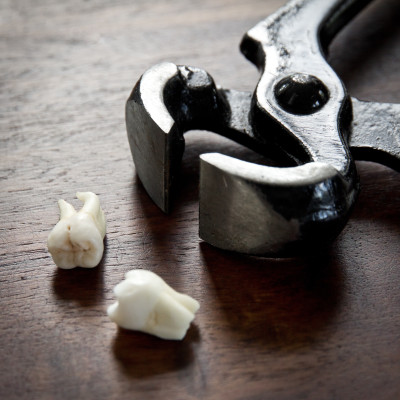
.
Most often, though, the best a body could do was find someone handy with a pair of pliers.
.
![]()
.
Western frontier folks pretty much managed until things got so durn ugly the only thing to do was pull the offending tooth, if they could identify which molar caused the pain. The pliers could’ve been wielded by the medical doctor (if’n they had one), the blacksmith, or barber.
.
Plenty of chairs intended for a haircut and shave doubled as a dental chair. Extractions were accomplished by brute force and the only anesthesia available was copious amounts of alcohol.
.
In the late 19th century, cocaine became the wonder drug for everything, including dental extractions. The railroad had long connected east and west, ensuring access throughout the nation.
.
In earlier decades, opium could be had on the west coast. Where used, controlling opium dosages proved near impossible, leaving the patient over-medicated, under-medicated, or dead.
.
Gunfighter Clay Allison’s Dental Nightmare
.
Old West dentistry could be dangerous for both patient and practitioner. In Wyoming Territory in 1886, notorious gunfighter Clay Allison, aggrieved that a dentist had mistakenly extracted the wrong tooth, later returned to the scene of the “crime.” Here the maniacal Allison grabbed a pair of forceps and proceeded to pull out one of the doctor’s own molars. Allison was prevented from doing any further harm when a group of passing men responded to the dentist’s frantic calls for help.
.
Perhaps part of the Code of the West was the law of retaliation, eye for an eye, tooth for a tooth…
.
Chris Enss, Author of The Doctor Wore Petticoats: Women Physicians of the Old West
.
Most emigrants who made their way west did not practice any kind of dental care. As a result rotten teeth and bad breath were commonplace. Toothbrushes were available in country stores by the late 1850s, as well as soap and chalk toothpastes. However, not everyone used them. Dentists wouldn’t become common on the frontier until the 1870s. The average citizen was completely toothless by the time he or she reached fifty.
.
~ The Doctor Wore Petticoats; Women Physicians of the Old West by Chris Enss
.
Dental Chair Patent Drawing, 1892
.
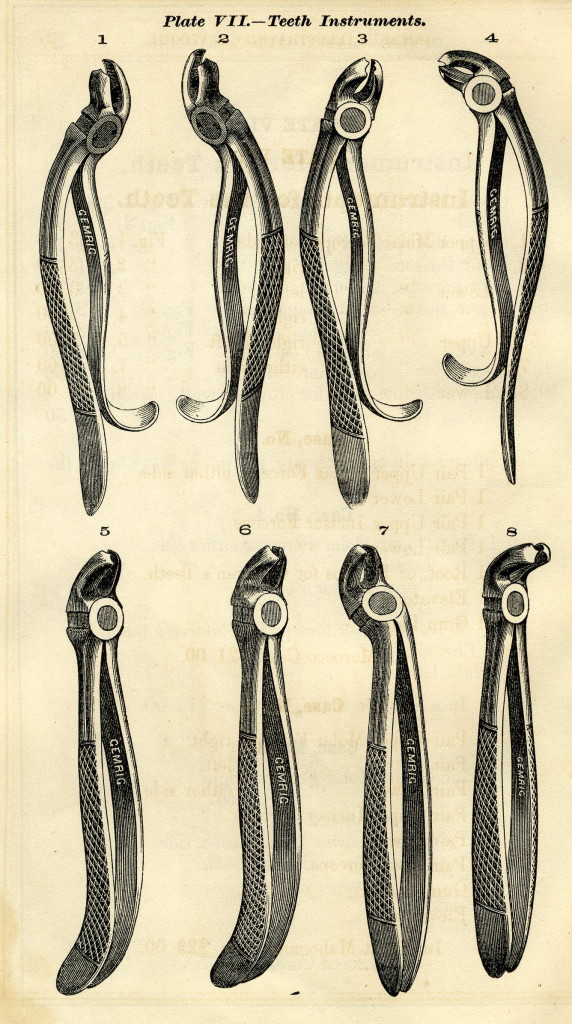
Civil War Era Dental Instruments
.
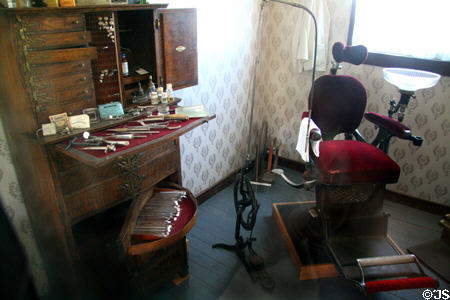
Victorian Dentist Office with Antique Instruments. Note the cabinet to hold the tools and provide easy access. See the foot-pedal drill, center.
.
Related Articles
.
.
.
Updated July 2022
Copyright © 2015 Kristin Holt LC
Old West Dentistry

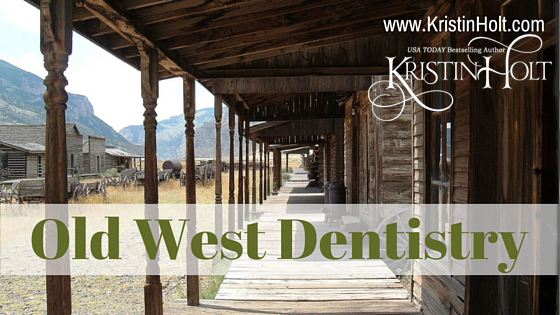

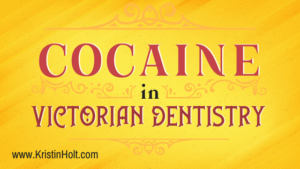


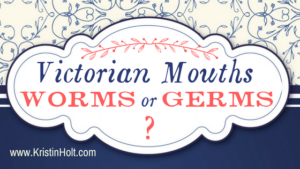

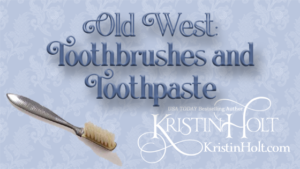
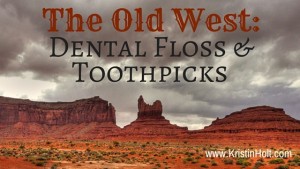

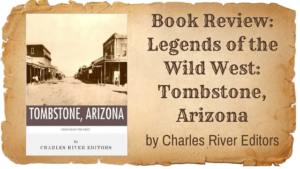







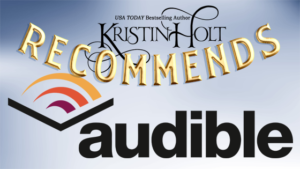

Great article, again, Kristin.
Thought you might like to know that the village blacksmith was often times tapped for dental assistance. The pincers pictured in your article are all based on devices used by smiths. They often times hosted livery service alongside their smithy and saw to the teeth of the horses in their care. It isn’t a vast leap to see the burly large muscled blacksmith tooling and machining a smaller device to pull an offending molar from a daintier mouth. At least most humans have daintier mouths than horses. That is, of course, if you discount my language when a stub my toes.
Thank you, Tracie! And you’re so very right, once more. Blacksmiths, handy with pliers and able to make a new tool as the need arose, most certainly did pull teeth in people as well as horses. Horrors! I would have to be in horrific pain from a toothache before I’d let a blacksmith (or anyone) take pliers to my tooth. And then likely faint from the shock and pain. I’m shuddering.